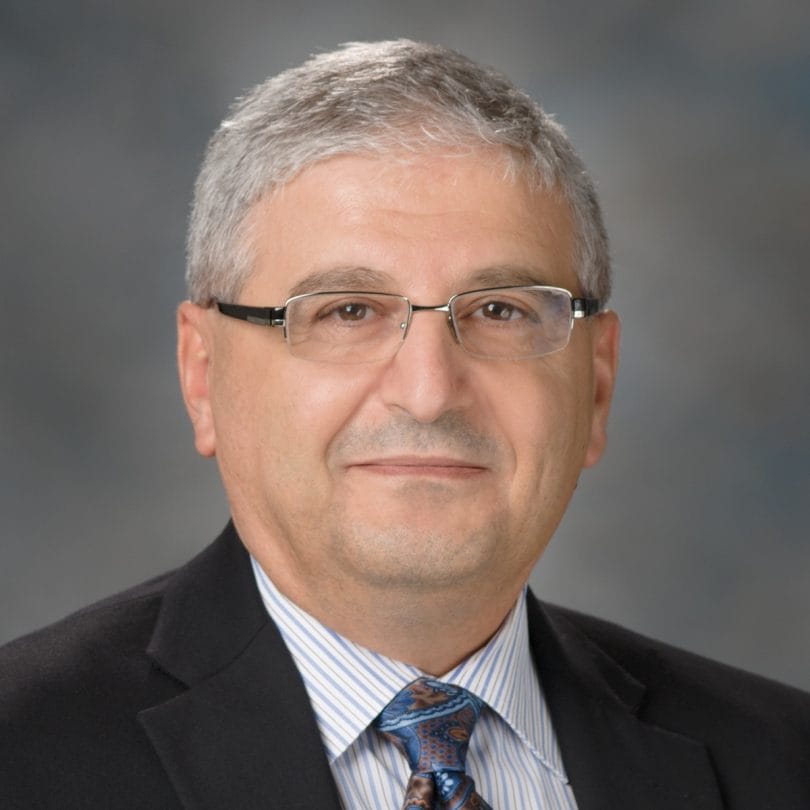
Issa Khouri, MD
Nonablative Allogenic Blood Stem Cell Transplantation for Patients with Indolent Lymphoid Malignancies
Chronic lymphocytic leukemia (CLL) is a relatively slowly progressing form of leukemia affecting specialized white blood cells known as lymphocytes. CLL mainly affects older people. One of the most effective treatments for some leukemias, including CLL, is the use of allogenic transplants, in which stem cells or bone marrow from a matching donor are used. This technique was originally developed to replenish the bone marrow after the use of extremely high dose chemotherapy or radiation to eradicate the malignant cells, thereby permitting higher doses of chemotherapy or radiation than could otherwise be used. Unfortunately, even with the use of allogenic transplants, these high dose chemotherapy and radiation regimens are associated with serious side effects, even death. Thus, they are usually reserved for younger patients in general good health. There is a growing body of evidence suggesting that allogenic transplants may succeed on their own in some leukemia and lymphoma patients, by causing the body’s own defense systems to launch an immune response against the malignant cells (in leukemia, this is referred to as a graft-versus-leukemia, or GVL, effect). Dr. Issa Khouri has conducted a small initial study of allogenic transplants without the use of drastic high dose chemotherapy or radiation regimens, with promising results. Dr. Khouri is proposing to build on this preliminary data by studying conventional chemotherapy regimens plus allogenic transplants in patients up to the age of 75 with advanced chronic lymphocytic leukemia and low grade lymphoma. It is hoped that this research will lead to more effective and better tolerated treatment strategies in older patients.